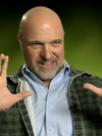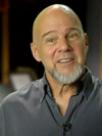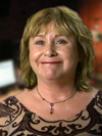
Emotion Through Music
Learn to use music as a dramatic player in a way that properly supports the emotion of the scene without overwhelming the performance.Emotion Through Music
Developed by Jason Tomaric, FilmSkillsABOUT THIS LESSON
Music is as much of a performer in a scene as the actor or the camera. It’s movements, tone, and intensity help shape the emotion of the moment. But, like any performance, the right performance can bring added life to the scene, but too much can overwhelm the moment, pulling the audience out of the story. In this module, you will learn how to balance music's role in a movie against the other dramatic elements, tips and techniques for creating a compelling score that supports the emotion of the movie, and how to avoid overscoring.
- 28:25 video that takes you through the process of creating emotion through music
- Illustrated companion guide
WHAT YOU WILL LEARN
- How to balance the emotional impact of music with the actors' performance
- How to avoid the pitfalls of overscoring the movie
- How to factor the role of music into the movie when working on set
ABOUT THE LESSON AUTHOR

Jason Tomaric
Director, Cinematographer Los Angeles, CaliforniaJason J. Tomaric is an Emmy, Telly, and CINE Award-winning director and cinematographer of four internationally-distributed feature films, dozens of national television commercials, music videos, and the largest film training content library in the world, published author of 8 books - used in many top universities, and creator of AccuSkills.com, an industry-changing learning management platform.
Jason has worked in Los Angeles and around the world in over 20 countries. His clients include Disney, NBC/Universal, National Geographic, McDonald’s, Toyota, Scion, Microsoft, and Paul Mitchell, with narrative work screened at Sundance, Slamdance, and South by Southwest film festivals as well as on Netflix and on all broadcast networks.
Jason has taught and/or guest lectured at some of the nation's most prestigious film schools including UCLA, Columbia College, John Carroll University, Kent State University, San Francisco State, University of Notre Dame, and numerous film festivals.
Jason has written eight industry-defining books, all sold in bookstores, and used in film schools around the world. The American Society of Cinematographers hails Jason's books - "There are no wasted words in Tomaric's tome, which concisely summarizes each facet of the director's craft. It's difficult to think of a step in the process that Tomaric fails to address."
Jason’s DVD training series on Hollywood film production have trained filmmakers in over 40 countries, with distributors in Europe, Hong Kong, New York and Australia.
In 2010, Jason launched FilmSkills, which combines the world’s largest film training video library with his proprietary learning management system. Adopted by 47 universities within the first year, FilmSkills is now the leading industry-standard training solution for motion picture and television production.
In 2015, Jason launched AccuSkills.com, an industry-changing learning management platform that bridges the gap between academia and industry.
CONTRIBUTORS TO THIS LESSON

Andrew Davis
Director: "The Fugitive," "Code of Silence," "Chain Reaction," "Collateral Damage," and "The Guardian"Born on the south side of Chicago, Illinois, Davis has directed several films using Chicago as a backdrop. He is the son of actor Nathan Davis and Metta Davis and the brother of musician Richard "Richie" Peter Davis co-founder of the cover band Chicago Catz and Jo Ellen Friedman.
After attending Harand Camp of the Theater Arts and Bowen High School, Davis went on to study journalism at the University of Illinois at Urbana-Champaign. It was not long before his interest in civil rights and anti-war issues converged with his growing interest in film-making. Davis was mentored by acclaimed cinematographer Haskell Wexler with whom he worked on Medium Cool and began his film career as a cameraman on blaxploitation films like The Hit Man, Cool Breeze and The Slams in the 1970s.
His first feature film as a director was the semi-biographical story, Stony Island. Davis has gone on to direct such films as The Fugitive, Under Siege, Above the Law (both starring Steven Segal), Code of Silence, Holes, The Package and The Guardian.
Davis also directed the cutscenes for the videogame Splinter Cell: Chaos Theory.

Jim Lang
Composer, "Ransom," "Dinosaur Train," "Hey Arnold!"
Kevin Kaska
Composer, Orchestrator "The Dark Knight," "Inception," "Man of Steel," "Anchorman 2," "The Lone Ranger," "Life of Pi," "Battleship," "Transformers: Dark of the Moon"American composer, arranger, record producer, and conductor, Kevin Kaska is one of America’s leading young musical talents. His orchestral compositions, arrangements, and orchestrations have been played by over 50 symphony orchestras worldwide, including John Williams and Keith Lockhart with theBoston Pops Orchestra, Saint Louis Symphony, London Symphony Orchestra (five CDs), Royal Scottish National Orchestra (recorded on CD),New Zealand Symphony Orchestra (recorded on CD), Maynard Ferguson and his Big Bop Nouveau Band, Skitch Henderson and the New York Popsat Carnegie Hall.
In 2012 Kevin Kaska orchestrated music on the Academey Award winning film score Life of Pi. Film composer John Debney asked Kaska to orchestrate his music into a 70 minute concert choral symphony based on the themes he wrote for the Mel Gibson film, The Passion of the Christ (Academy Award nominated score). Kevin Kaska also orchestrates for film composer Hans Zimmer, including The Dark Knight and The Dark Knight Rises.
Kevin Kaska is one of the few musicians to hold a Guiness Book of World Records. The World Harp Congress commissioned Kaska for a work that was premiered with the largest harp ensemble in recorded history. Kaska conducted the concert of 232 harps in Amsterdam, July, 2008.
His work includes: Inception, The Amazing Spider-Man 2, Sherlock Holmes 1 & 2, ParaNorman, Savages, Step Brothers, the 2012 Oscars, and the mini-series The Pacific.

Steven Saltzman
Music Editor, "Ghost Rider," "The Preacher's Wife," "Movie 43," "Priest"Music Editor & Composer Steven Saltzman has a diverse musical background. His education includes a Bachelors of Music Degree in composition and film scoring from Berklee College of Music in Boston. He also studied composition with Boston Conservatory composer, John Hess, and continued to study composition and orchestration with Dr. Albert Harris, as well as attended the BMI Film Scoring workshop with Earl Hagan.
While on the East coast Mr. Saltzman composed music for WGBH and ABC Television, animated films, a variety of commercials as well as for the theatre in Boston. Steven eventually moved to California to pursue his dream of working in Hollywood scoring motion pictures. There he composed the score for numerous independent films, commercials and syndicated television shows.
Steven has composed the music for The Chicken From Outerspace, an Academy of Motion Pictures Arts and Sciences Award of Merit animation film. He has worked with various composers including Klaus Badelt, Nathan Furst, Mark Mothersbaugh, J.A.C. Jaview Navarette, Redford, Larry Groupé, and Ernest Troost. Steven has also been awarded three Golden Reel Award Nominations and a 2005 Golden Reel Award for his music editing.
His work includes:Priest, Seven Days In Utopia, Straw Dogs, The Hole, The Answer Man, Dragonball: Evolution, WAR, Inc., The King of California, Strange Wilderness

Vanessa Theme Ament
Foley Artist, "Die Hard," "Edward Scissorhands," "Predator;" Author of "The Foley Grail," Nominated for 2001 Golden Reel AwardVanessa Ament was born in Glendale, California, and raised in the central coast county of San Luis Obispo. She grew up the granddaughter of the early film pioneer Earl L. McMurtrie. Vanessa was a singer and dancer in her youth and performed in many plays and cabaret shows. At Whittier College, she earned a B.A. in Theatre, and after graduation, worked for the Glendale Regional Arts Council as an "Artist-in-the-Schools" in the field of theatre. She "fell" into the work of a Foley Artist by mistake when she auditioned to replace a voice for a film and her accurate sync caught the attention of the mixer, Robert Deschaine and the manager of Gomillion Sound James L. Honore. She started training as a Foley Artist at Gomillion, thinking it would be "a good gig between acting and singing jobs."
This fill-in job became her primary career for over twenty years. Along the way, she began voice casting and acting, Foley and ADR editing, and writing and singing her own songs in the L.A. cabaret and jazz scene. In her thirties, Vanessa earned an M.Div. as a Unitarian Universalist at Starr King School for the Ministry, in Berkeley. Vanessa has always loved teaching, and had various stints as a Sound Supervisor for students at AFI and USC, as well as an educator at various schools and colleges, including Cuesta College, in San Luis Obispo, as well as both DePaul University and Columbia College in Chicago. Vanessa has been a member of MPSE, CAS, BMI, AFM, SAG, Equity, Society of Composers and Lyricists, Women in Film, and The Academy of Television Arts and Sciences. She has won three Golden Reel Certificates for Foley for the films The Dollmaker (1984), Predator (1987), and Die Hard (1988), and has had several nominations for other films.
Vanessa has been featured at film festivals, sound festivals and in various publications. From the mid-1980s to the mid-1990s, she published MovieSound Newsletter. Music is Vanessa's true calling and she released her first CD in 2004. The most challenging thing Vanessa ever did, other than keep the faith that "work would come," was home school her son for seven years.